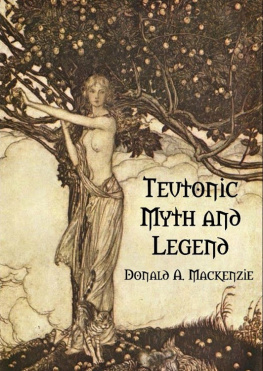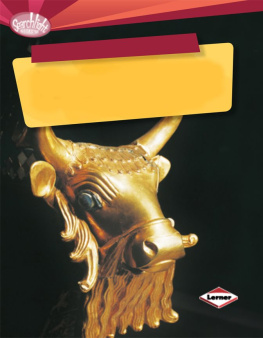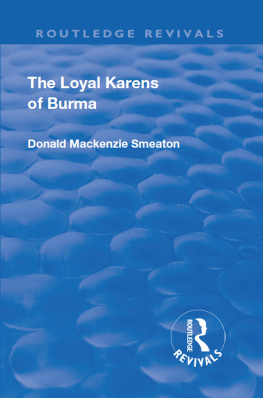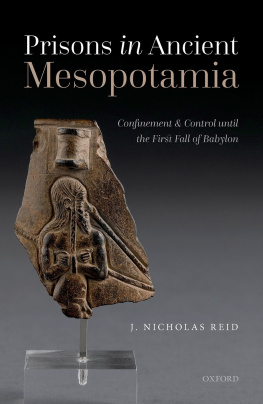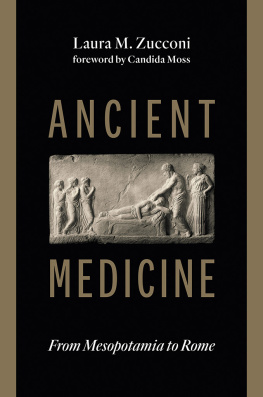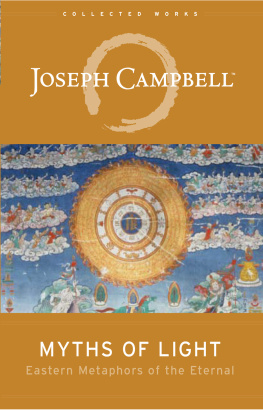Preface
This volume deals with the myths and legends of Babylonia and Assyria, and as these reflect the civilization in which they developed, a historical narrative has been provided, beginning with the early Sumerian Age and concluding with the periods of the Persian and Grecian Empires. Over thirty centuries of human progress are thus passed under review.
During this vast interval of time the cultural influences emanating from the Tigro-Euphrates valley reached far-distant shores along the intersecting avenues of trade, and in consequence of the periodic and widespread migrations of peoples who had acquired directly or indirectly the leavening elements of Mesopotamian civilization. Even at the present day traces survive in Europe of the early cultural impress of the East; our "Signs of the Zodiac", for instance, as well as the system of measuring time and space by using 60 as a basic numeral for calculation, are inheritances from ancient Babylonia.
As in the Nile Valley, however, it is impossible to trace in Mesopotamia the initiatory stages of prehistoric culture based on the agricultural mode of life. What is generally called the "Dawn of History" is really the beginning of a later age of progress; it is necessary to account for the degree of civilization attained at the earliest period of which we have knowledge by postulating a remoter age of culture of much longer duration than that which separates the "Dawn" from the age in which we now live. Although Sumerian (early Babylonian) civilization presents distinctively local features which justify the application of the term "indigenous" in the broad sense, it is found, like that of Egypt, to be possessed of certain elements which suggest exceedingly remote influences and connections at present obscure. Of special interest in this regard is Professor Budge's mature and well-deliberated conclusion that "both the Sumerians and early Egyptians derived their primeval gods from some common but exceedingly ancient source". The prehistoric burial customs of these separate peoples are also remarkably similar and they resemble closely in turn those of the Neolithic Europeans. The cumulative effect of such evidence forces us to regard as not wholly satisfactory and conclusive the hypothesis of cultural influence. A remote racial connection is possible, and is certainly worthy of consideration when so high an authority as Professor Frazer, author of The Golden Bough , is found prepared to admit that the widespread "homogeneity of beliefs" may have been due to "homogeneity of race". It is shown (Chapter 1) that certain ethnologists have accumulated data which establish a racial kinship between the Neolithic Europeans, the proto-Egyptians, the Sumerians, the southern Persians, and the Aryo-Indians.
Throughout this volume comparative notes have been compiled in dealing with Mesopotamian beliefs with purpose to assist the reader towards the study of linking myths and legends. Interesting parallels have been gleaned from various religious literatures in Europe, Egypt, India, and elsewhere. It will be found that certain relics of Babylonian intellectual life, which have a distinctive geographical significance, were shared by peoples in other cultural areas where they were similarly overlaid with local colour. Modes of thought were the products of modes of life and were influenced in their development by human experiences. The influence of environment on the growth of culture has long been recognized, but consideration must also be given to the choice of environment by peoples who had adopted distinctive habits of life. Racial units migrated from cultural areas to districts suitable for colonization and carried with them a heritage of immemorial beliefs and customs which were regarded as being quite as indispensable for their welfare as their implements and domesticated animals.
When consideration is given in this connection to the conservative element in primitive religion, it is not surprising to find that the growth of religious myths was not so spontaneous in early civilizations of the highest order as has hitherto been assumed. It seems clear that in each great local mythology we have to deal, in the first place, not with symbolized ideas so much as symbolized folk beliefs of remote antiquity and, to a certain degree, of common inheritance. It may not be found possible to arrive at a conclusive solution of the most widespread, and therefore the most ancient folk myths, such as, for instance, the Dragon Myth, or the myth of the culture hero. Nor, perhaps, is it necessary that we should concern ourselves greatly regarding the origin of the idea of the dragon, which in one country symbolized fiery drought and in another overwhelming river floods.
The student will find footing on surer ground by following the process which exalts the dragon of the folk tale into the symbol of evil and primordial chaos. The Babylonian Creation Myth, for instance, can be shown to be a localized and glorified legend in which the hero and his tribe are displaced by the war god and his fellow deities whose welfare depends on his prowess. Merodach kills the dragon, Tiamat, as the heroes of Eur-Asian folk stories kill grisly hags, by casting his weapon down her throat.
He severed her inward parts, he pierced her heart,
He overcame her and cut off her life;
He cast down her body and stood upon it ...
And with merciless club he smashed her skull.
He cut through the channels of her blood,
And he made the north wind to bear it away into secret places.
Afterwards
He divided the flesh of the Ku-pu and devised a cunning plan.
Mr. L.W. King, from whose scholarly Seven Tablets of Creation these lines are quoted, notes that "Ku-pu" is a word of uncertain meaning. Jensen suggests "trunk, body". Apparently Merodach obtained special knowledge after dividing, and perhaps eating, the "Ku-pu". His "cunning plan" is set forth in detail: he cut up the dragon's body:
He split her up like a flat fish into two halves.
He formed the heavens with one half and the earth with the other, and then set the universe in order. His power and wisdom as the Demiurge were derived from the fierce and powerful Great Mother, Tiamat.
In other dragon stories the heroes devise their plans after eating the dragon's heart. According to Philostratus,
Magic and religion were never separated in Babylonia; not only the priests but also the gods performed magical ceremonies. Ea, Merodach's father, overcame Apsu, the husband of the dragon Tiamat, by means of spells: he was "the great magician of the gods". Merodach's division of the "Ku-pu" was evidently an act of contagious magic; by eating or otherwise disposing of the vital part of the fierce and wise mother dragon, he became endowed with her attributes, and was able to proceed with the work of creation. Primitive peoples in our own day, like the Abipones of Paraguay, eat the flesh of fierce and cunning animals so that their strength, courage, and wisdom may be increased.
The direct influence exercised by cultural contact, on the other hand, may be traced when myths with an alien geographical setting are found among peoples whose experiences could never have given them origin. In India, where the dragon symbolizes drought and the western river deities are female, the Manu fish and flood legend resembles closely the Babylonian, and seems to throw light upon it. Indeed, the Manu myth appears to have been derived from the lost flood story in which Ea figured prominently in fish form as the Preserver. The Babylonian Ea cult and the Indian Varuna cult had apparently much in common, as is shown.




